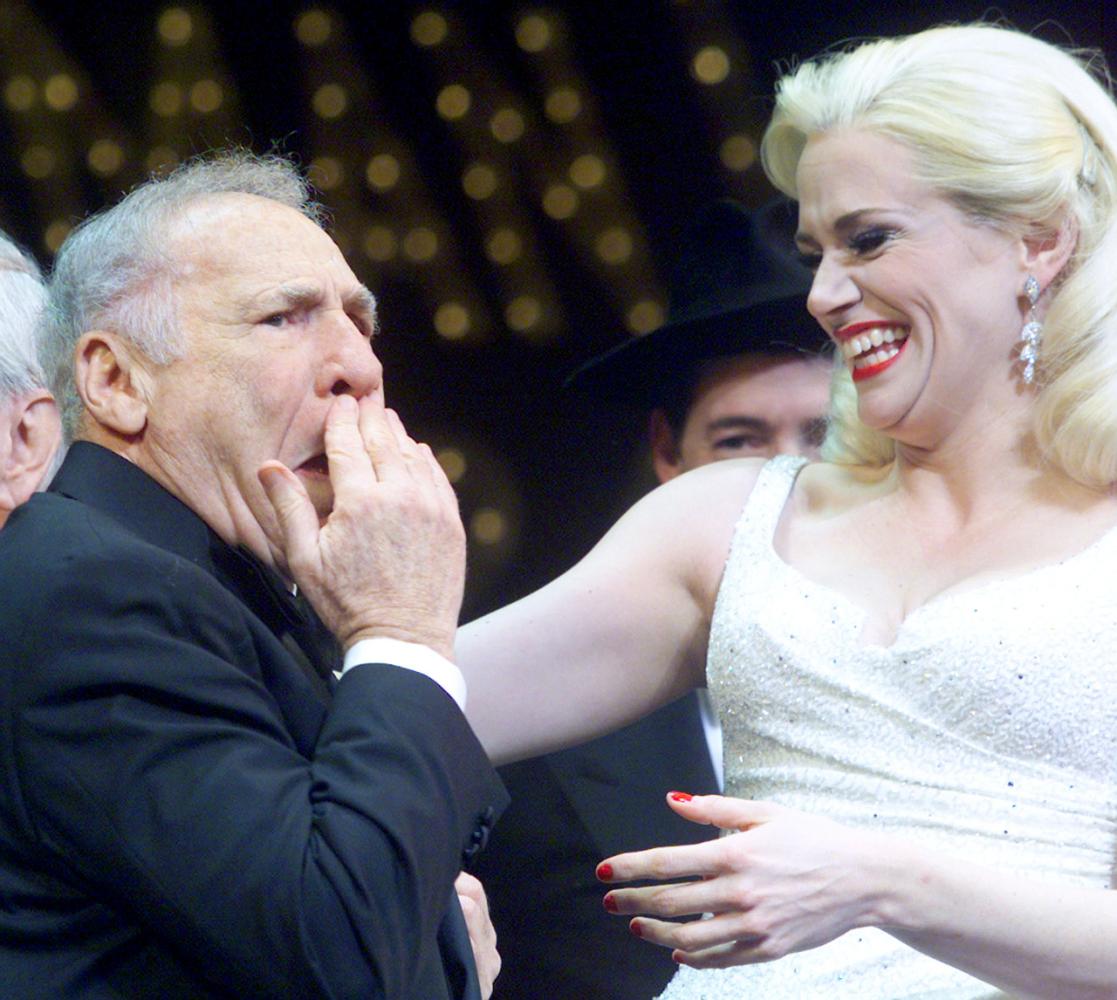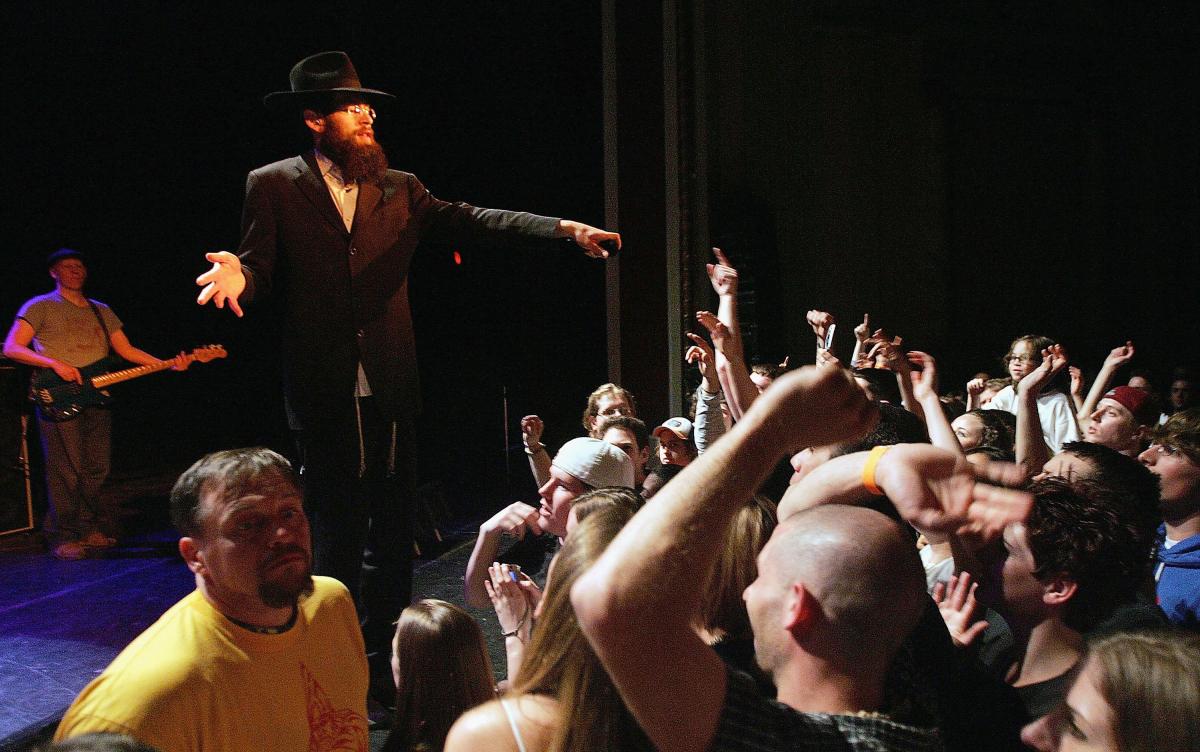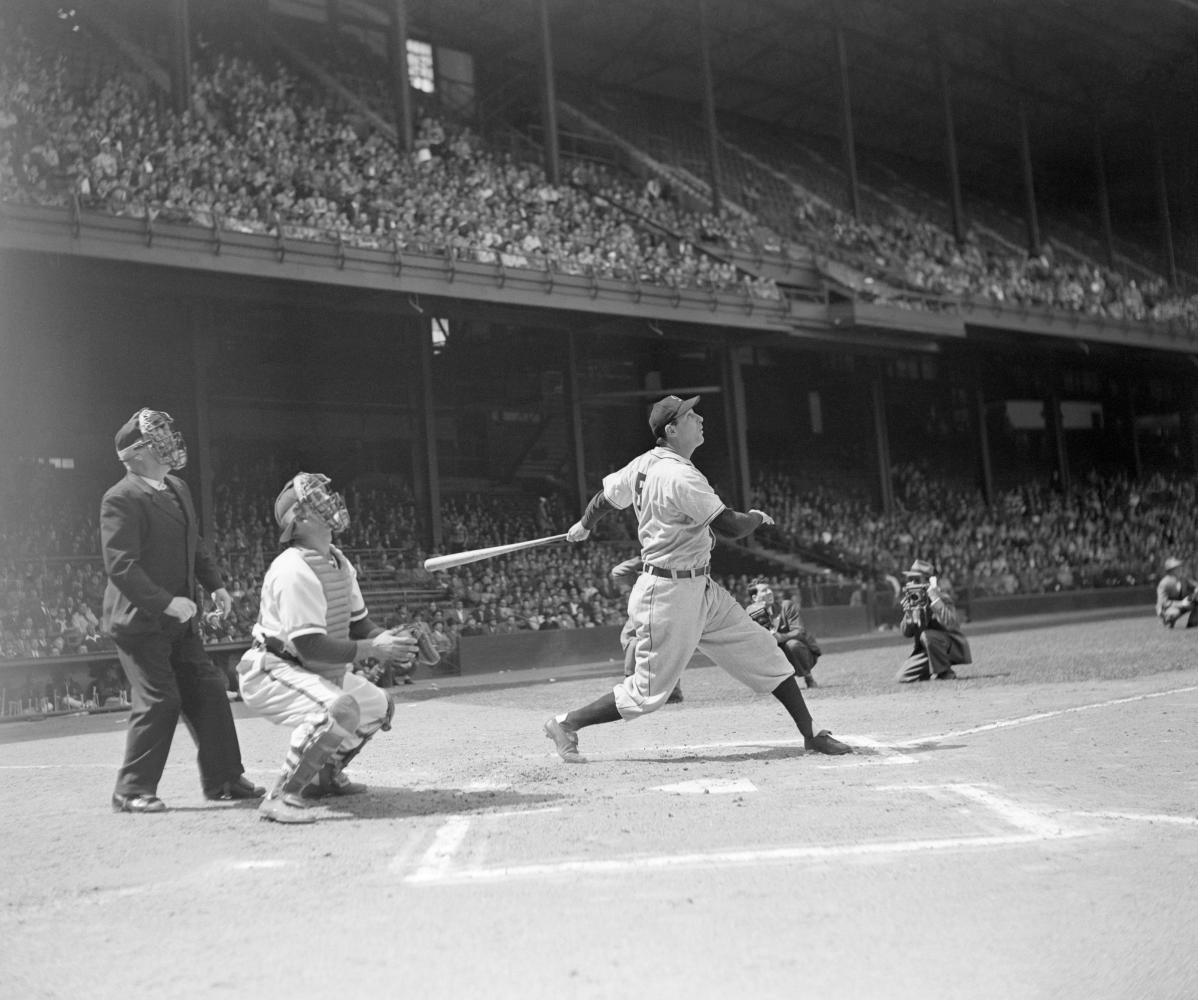“It's a complex fate, being an American,” wrote Henry James, and so it is. But I wonder if it isn't perhaps a touch more complex a fate being a Jewish American. Jewishness may be the only religion that marks you even if you don't practice it. Example: The adolescent son of a dear friend of mine, trying to get out of going to High Holiday services, said to his father, “Why do I have to go to synagogue? Uncle Joe [that would be me] doesn't go to synagogue, and no one is more Jewish than Uncle Joe.” The boy is quite right, too, at least about me, than whom there aren't all that many people more Jewish. Yet about what other religion, what other ethnicity, could one make a similar statement?
A further example: Some years ago I was sitting in a concert hall in Jerusalem, listening to Shlomo Mintz lead the Israel Chamber Orchestra, when the thought occurred to me that everyone in the room, musicians and audience, is quite possibly Jewish. Something comforting in that, I thought, yet, so briefly did the comfort last than I thought: Much as I admire Israel, its accomplishments, and the courage of its people, I prefer to live in America, where my ethnicity puts me in a small minority of the country's population, a condition I rather prefer.
The Jewish Americans is the title of a new six-hour documentary about Jews in the United States, made with the support of the National Endowment for the Humanities, that will begin airing January 9 on PBS stations around the country. Note the title, The Jewish Americans, if you please, not “The American Jews.” “Jewish Americans” puts the emphasis where it belongs: on America. “American Jews” would put it on Jews. The vast majority of Jews who live in the United States think themselves Americans who are also Jewish, some intensely so, some only peripherally.
David Grubin, who wrote and directed this interesting documentary, got his title, and much else, dead-on right. His informative and entertaining film does not, in any serious sense, depart from the standard form of the modern television documentary. But he brings this form to a high sheen, with a solid narration spoken at a perfect pitch of serious non-pretentiousness by the actor Liev Schreiber and haunting music by Michael Bacon.
The standard documentary form features talking heads whose points are illustrated or reinforced by historical bits of film. Much depends on the quality of the talk; more perhaps than on that of the film. In The Jewish Americans, Carl Reiner, who comments on Jewish Americans in show business, is unfailingly charming. He reports that the Queen of England, given his and Mel Brooks's 2000 Year 0ld Man comedy album by Cary Grant, said that she much enjoyed it, causing Reiner to remark that Jewish comedy had really arrived if the Queen, “the biggest shikse in the world,” enjoys it. (Shikse is Yiddish for gentile woman.) The playwright Tony Kushner is predictably left-wing in his views, and hence provides no surprises. The intelligence of the writer Letty Cottin Pogrebin shines through whenever she is on camera. The cartoonist Jules Feiffer is very smart on the connection between Jews and radical politics in America, and is perhaps most impressive when, with much sympathy, he explains why, during the Depression, so many Jewish radicals joined the American Communist party, then caps this off by saying, “and they were wrong.” Ruth Bader Ginsburg, associate justice of the Supreme Court, lends a touch of gravity to the proceedings, and is especially good on the subject of Louis Brandeis, the first Jew to be appointed to the Supreme Court, who said that “the highest Jewish ideals are essentially American.”
More than one person is brought in to comment on how, as an American soldier, he was an eye witness to the liberation of the German death camps. In two different segments of The Jewish Americans, those ghastly films of the camp survivors, all death-haunted eyes and protruding bones, are shown along with the piles of corpses strewn in gray heaps. One doesn't have to be Jewish to be freshly shocked each time one sees this film; I find myself turning away, so unbearably horrifying do I find it. I wonder about Grubin's decision to haul this film out yet again—wonder if doing so wasn't perhaps too obvious, too easy, too heart-wrenching. But, then, I suspect that Grubin's response would be that the Holocaust is the central twentieth-century Jewish experience, even for those Jewish Americans who have never been in Europe.
One learns from the credits that The Jewish Americans was aided in its financing by several Jewish family foundations. Yet the documentary is far from puffery, no paean to how flawlessly fine the Jews have always been and remain today. To be sure, this documentary does not in any sense attempt to debunk the experience of the Jews in America, but it does set out on display some rather private laundry.
In one of its segments, it takes up the question of the nervousness that the well-established Jewish Americans of German origin—the Guggenheims and Loebs, the Warburgs and Wertheims, and other families chronicled in Stephen Birmingham's Our Crowd—felt upon the arrival, beginning in the 1880s and continuing in large waves through the early 1920s, of the poor Jews of Eastern Europe. The reigning feeling of the American Jews of German origin was that their often coarse, all-too-peasant-like co-religionists would further retard their own efforts at complete assimilation into American life. The word kike, it is widely believed, originally gained currency not among anti-Semites but among the American Jews from Germany to describe those from Eastern Europe. Meanwhile, the latter, to mock the rigid pretensions of the former, used to call them yekke, the Yiddish word for "jacket," which implied the German Jews were so stuffy they never took off their jackets. It comes up in the following joke: “What is the difference between a virgin and a yekke?” The answer is: “A yekke remains a yekke.” Although the German-born Jewish Americans are now something on the order of a dying breed, the bad feeling has not yet altogether dissipated.
The Jewish Americans also takes up the touchy question of the delicate relations between Jewish Americans and African Americans. Jews in America traditionally felt they had a special affinity with African Americans, both peoples having a history of slavery and persecution. During the Civil Rights Movement of the 1960s, The Jewish Americans reports, nearly half the country's civil rights lawyers were Jewish and more than half the white civil rights workers were Jewish. Two of the three people killed in Mississippi during Freedom Summer were Jewish: Andrew Goodman and Michael Schwerner; the third, James Chaney, was African American.
Yet when the Black Power faction—Stokely Carmichael, H. Rap Brown, & Co.—took over the Civil Rights Movement, Jewish civil rights workers were told to get lost. In 1968, in the New York City teachers strike, begun in the decentralized Ocean Hill-Brownsville District, a black school board unceremoniously fired all its white teachers, a preponderant number of whom were Jewish. African-American-Jewish tensions were sadly exacerbated during this strike, and the two groups viewed each other as something close to enemies. Grubin does not scamp this in the least; and he is too honest to suggest that all this bad feeling has been forgotten. This segment of his documentary is drawn not as a full-blown tragedy but as a genuine sadness.
The documentary takes up Jewish crime, mentioning such figures as Waxy Gordon and Arnold Rothstein (the man who is supposed to have fixed the 1919 World Series), though it doesn't dwell overlong on this, failing to mention Murder, Inc., Louis “Lepke” Buchalter, and, closer to our own day, Meyer Lansky. The only Jewish athlete who gets extended attention is Hank Greenberg, the slugger of the Detroit Tigers and the idol of every Jewish kid interested in sports who grew up in the 1930s and '40s. Sid Luckman, Al Rosen, Sandy Koufax, and other Jewish jocks who have niches in that small room known as the Jewish Athletes Hall of Fame go unmentioned.
The Yiddish theater is nicely covered, and one of the talking heads for this portion is the conductor Michael Tilson Thomas, whose grandfather was Boris Thomashefsky, the David Garrick of the Jews. Al Jolson, Paul Muni, Edward G. Robinson (born Emanuel Goldenberg) were among the actors who came out of the Yiddish Theater, a cultural enterprise that drew vast crowds and whose pretensions were less than modest. I remember seeing a poster that read: William Shakespeare's King Lear, with Improvements by Maurice Schwartz. The segment on Jewish songwriters centers on Irving Berlin; the Gershwins, Jerome Kern, Harold Arlen, Richard Rodgers, Oscar Hammerstein, and others go unmentioned. Berlin is highlighted, justifiably, because of his deep and often acclaimed love for this country; he gave away all the royalties for “God Bless America,” we learn, because he didn't want to seem to be making money off his heartfelt patriotism.
The Jewish Americans is in the end a success story, though one with many potholes encountered along the way. The principal narrative line features the assimilation of Jews into American life, from seventeenth-century America to the current day, from Jewish peddlers working the back roads of rural America to leading Jewish figures in American politics and commerce.
Much of the story has to do with the gradual breakdown of anti-Semitism in American life. A painful segment in The Jewish Americans is devoted to Leo Frank, falsely accused of raping and killing a girl in Atlanta and the only Jew ever lynched in America. “Restricted,” a euphemism for No Jews Allowed, was still a word much in use in real estate in my boyhood in Chicago, where in the 1940s and 1950s neighborhoods and entire suburbs were off-limits to Jews. At Big Ten and other universities, segregation in fraternities and sororities was by religion; race wasn't even up for consideration.
Not allowed to participate in many American institutions, Jews created parallel ones: their own fraternities and sororities, community centers, hospitals, shopping districts. Hollywood studio heads, most of them Jewish, produced movies that were their personal fantasies of the gentile world, such as the sixteen Andy Hardy films. So nervous were Louis B. Mayer and other of the Hollywood moguls about the place of Jews in America that they changed the names of their Jewish stars: Lauren Bacall was born Betty Joan Perske, Kirk Douglas, Issur Danielovitch Demsky.
Once the Jew-bee enters the bonnet of certain people, it seems never to cease buzzing. The Jewish Americans takes up the anti-Semitism of Henry Ford and, to a lesser degree, that of Father Coughlin and Charles Lindbergh, the latter perhaps the greatest American hero of the first decades of the twentieth century. Jews with long memories are still hesitant to buy Fords, and the novelist Philip Roth not long ago wrote The Plot Against America, a novel positing the dark fate of the Jews in America if Lindbergh had been elected president. The documentary takes up the regrettable subject of the exclusion of Jews from many major corporations and the strict anti-Jewish quotas set by many elite universities and professional schools. Pleasing to report that these essentially anti-Semitic policies have all been revoked.
The newest form of anti-Semitism in America is in connection with Israel, and those who take it up do so over the false issue of loyalty. Suspicions about the loyalty of Jewish Americans who support Israel, financially and with their hearts, lurks not far behind the books about the power of the so-called Israeli Lobby; those who feel America has no business whatsoever being involved in the Middle East enjoy paranoid fantasies that the country, through Jewish connivance, does so to protect Israel.
As someone who feels a strong link with Israel, I have never for a moment thought of abandoning the United States to live there. As a writer it would cut me off from my subjects; as a man it would uproot me painfully. One of the greatest strokes of good luck in my life has been to be born and live in the United States. And yet, as a Jewish American with an historical sense, it is impossible for me to be unaware of how important the state of Israel is. Letty Cottin Pogrebin puts it well when she says, “This [America] is our country, that [Israel] is our home,” and then goes on to quote Robert Frost saying that “home is where they have to take you in.”
The Jewish Americans ends on a note of slightly confused promise. Anti-Semitism appears less currently than at any time in the history of Jewish Americans. Much in the Jewish religion is itself undergoing radical change, at least in its Reform and Reconstructionist branches, where women are now among the majority of those studying for the rabbinate. At the same time, there has been a resurgence of Orthodox Judaism among younger Jews in the United States. So we see in this excellent documentary some Jews doing yoga sessions under the guidance of a woman rabbi, while others walk the streets in silken kaftans and long white socks as if living in eighteenth-century Poland.
What The Jewish Americans does not take up is that, irony of ironies, the relative absence of anti-Semitism in America today along the increase of mixed marriages between Jews and gentiles may ultimately be the biggest threat faced by Jewish Americans who wish to continue to live fully as Jews and as Americans both. The consequence of perfect assimilation, so longed for by earlier generations of Jewish Americans, could mean the end of the Jews as a distinctive people in America. Like the man said, it's a complex fate, that of being a Jewish American.









